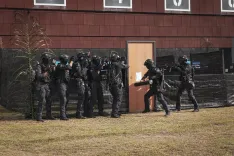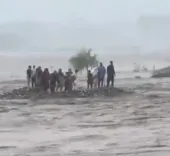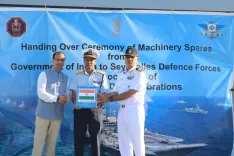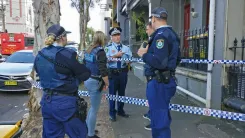Why Were Six Americans Arrested for Sending Goods to North Korea?

Synopsis
Key Takeaways
- Six Americans were arrested for attempting to send aid to North Korea.
- The actions raised legal and diplomatic concerns.
- The area is restricted due to safety regulations.
- The South Korean government is focused on restoring relations with the North.
- Humanitarian efforts can be complicated by legal boundaries.
Incheon, June 27 (NationPress) - On Friday, South Korean authorities detained six American citizens who attempted to launch plastic bottles filled with rice, one dollar bills, and the Bible into the sea near a restricted border area as part of an effort to send them to North Korea, according to officials.
The US nationals, whose ages range from their 20s to 50s, allegedly aimed to release approximately 1,300 plastic bottles containing these items from a restricted zone on Ganghwa Island, located about 50 kilometers west of Seoul, during the early morning hours.
They were taken into custody following a report from a coastal military unit that oversees the area, leading to charges of violating the management of disasters and safety framework act.
This particular area has been off-limits to the public since being designated as a danger zone last November. An administrative order currently prohibits the launch of anti-Pyongyang leaflets in the region.
As per police reports, the US nationals will undergo investigation without detention since their actions do not currently justify an arrest warrant, as reported by Yonhap news agency.
Authorities discovered that these individuals are not linked to any civic or religious organizations in Incheon and are working to ascertain any associations with other groups both within and outside of South Korea.
“We’re planning to release them as we do not believe the circumstances justify requesting an arrest warrant, and we will continue our investigation without physical detention,” stated a police official.
In South Korea, groups of North Korean defectors have previously released similar bottles into waters near the border, which they describe as attempts to provide humanitarian aid to the impoverished populace of the country.
Newly inaugurated South Korean President Lee Jae Myung has ordered actions to prevent the dissemination of leaflets critical of North Korea and to penalize those who violate related laws as he aims to restore strained relations with the North.








